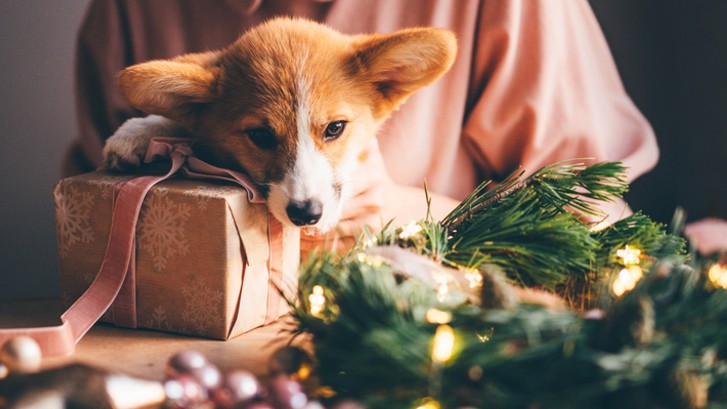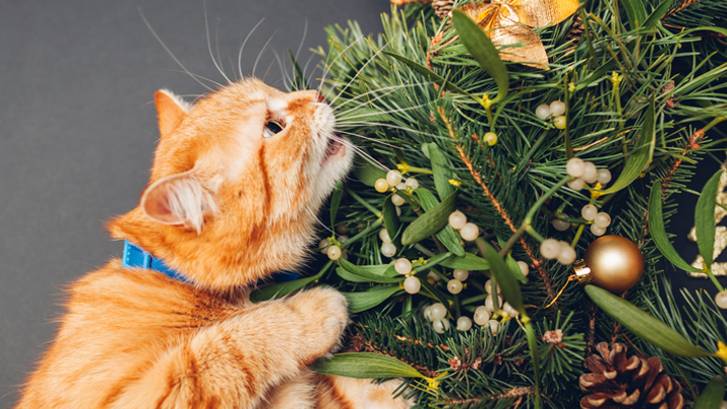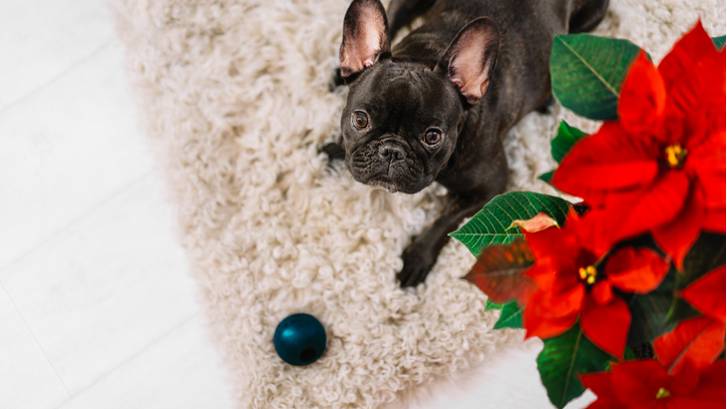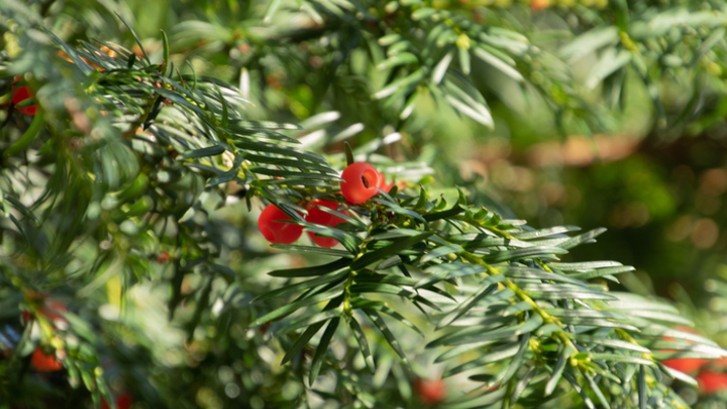Top 10 holiday plants poisonous to pets
Decorating with holly, mistletoe, and poinsettia may look festive but they’re actually on the list of holiday plants poisonous to pets!

During the holiday season, the last thing you should be worrying about is whether your festive holiday plants are poisonous to pets.
As pretty as it all looks, unfortunately, some of the joyful greenery we so often have in our homes at this time of year can prove to be incredibly toxic for our cats and dogs should their curiosity get the better of them and they eat or come into contact with these plants.
That’s why pet insurance experts, money.co.uk, have put together a list of top ten holiday plants that are toxic to our four-legged friends. Let’s check it out:
1. Christmas Trees
A traditional sight in many homes across the world, the pine needles on real trees can cause irritation in the mouth and upset stomach if chewed, as a result of the oils that will be released. These prickly needles can also cause harm to an animal internally.

2. Holly
The famous spiky-edged leaves and holly berries can cause varied symptoms when eaten, from drooling and vomiting, to excessive head-shaking when large amounts have been ingested.
3. Mistletoe
When consumed in excessive quantities, the chemicals found in mistletoe berries can result in incoordination, abnormal heart rate, and low blood pressure.

4. Snowdrops
Containing toxins in their leaves, stems, and bulbs, snowdrops have the potential to give your pet stomach pain, vomiting, lower heart rate, a drop in blood pressure, and cause incoordination.
Get the best advice, tips and top tech for your beloved Pets
5. Poinsettia plants
The epitome of Christmas, a poinsettia plants’ leaves contain a chemical that can irritate the mouth, esophagus, and skin, as well as cause drooling, vomiting, and diarrhea.

6. Ivy
Coming into direct contact with Ivy can trigger severe skin irritation and, if ingested, severe stomach upset.
7. Amaryllis
This is one to watch out for if your pet likes to dig as the amaryllis bulb contains the most toxins in the plant which, when eaten, can result in loss of appetite, lethargy, upset stomach, and tremors.
8. Laurel
If eaten, this type of plant - in the extremest of cases - can lead to muscle weakness, hypotension, and seizures.
9. Yew
Every part of the Yew plant is highly poisonous to pets, causing breathing difficulties, vomiting, weakness, and life threatening changes in the animal’s blood pressure and heart rate.

10. Lilies
Even if your pet only swallows the smallest amount of a lily, this has the potential to cause severe gastrointestinal damage.
It’s important to remember that if you do decide to feature any of the following in your holiday decorations and your pet did become affected by it, you must seek immediate attention from your veterinarian.
Chloe is a freelance writer, editor, and proofreader, who has more than ten years’ experience in creating animal-focussed content. From National Geographic to Animal Planet, Chloe’s passion for creating fact-filled features all about wildlife and the environment is evident. But it’s not just wild animals that Chloe’s fascinated by. Having written more than 75 articles for PetsRadar - and having her very own four-legged friend by her side - it’s no wonder that her love of dogs (and, of course, cats) has grown exponentially.
Her website, www.chloemaywrites.com, and social media pages - @ChloeMayWrites on Instagram, Facebook, and Twitter - showcase her knowledge through daily facts and trivia tidbits. For example, did you know that snails have teeth?!

